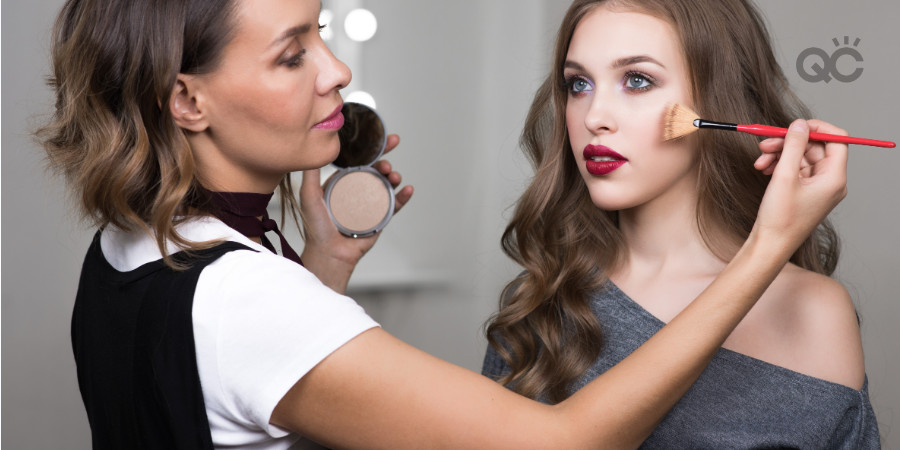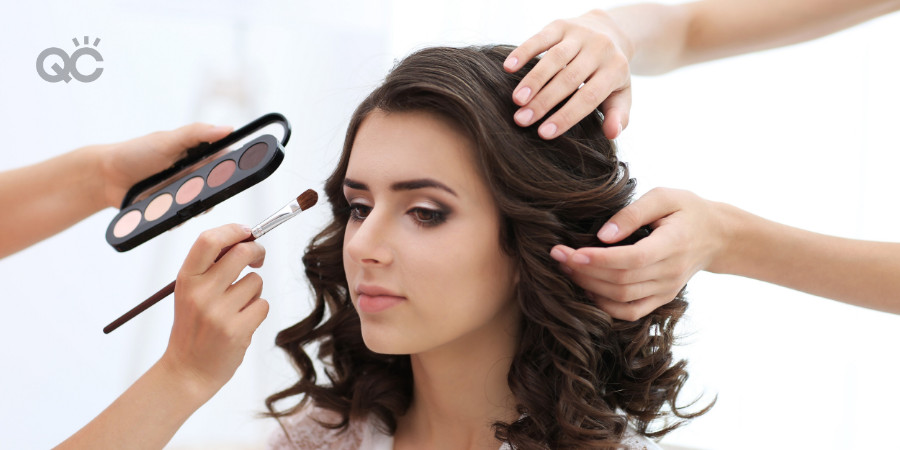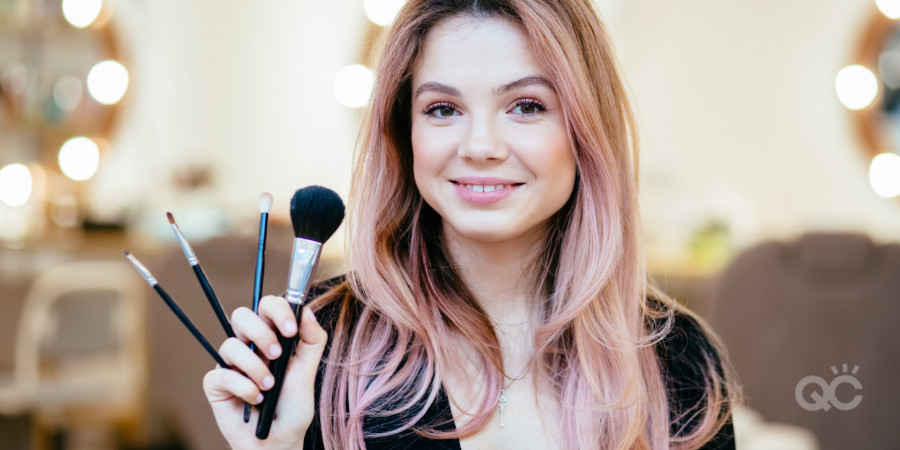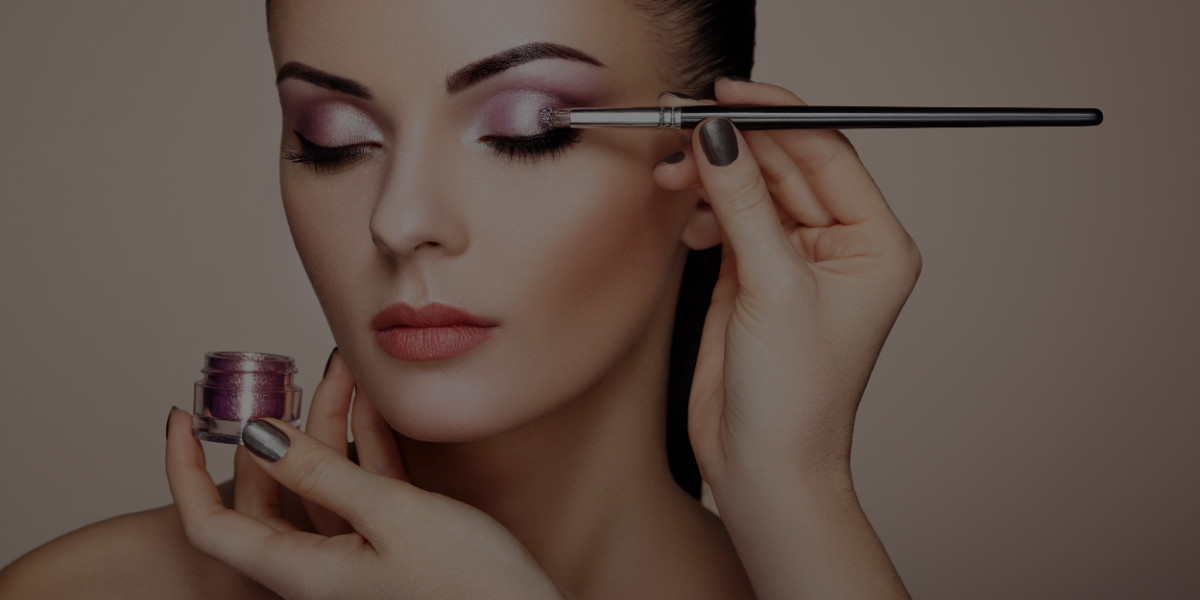If you want to become a makeup artist, do you go to beauty school or should you attend a makeup school? Are they the same thing? Is there something you learn in makeup courses that you don’t in a beauty course?
The short answer is: “Beauty Courses” aren’t really a thing.
When people talk about “beauty courses”, they probably mean makeup classes. They may also use “beauty courses” as a term to describe esthetics courses. There are, however, “beauty schools” that exist. So let’s compare those.
Read on to find out more about the differences between makeup classes and beauty courses!

What “Beauty Schools” Actually Teach
Schools call themselves all kinds of names. Beauty Schools can teach a whole hosts of different topics. But by-and-large, these schools will probably teach a range of courses and programs aimed at students who want to become professional estheticians. Typically these will be brick-and-mortar schools (though they may offer a few “online” programs), with accompanying higher tuition costs that come with classroom-based training.
Some programs typically taught in beauty schools include:
Hair Styling – Typically this will be a full diploma-based program that will teach you how to be a hair dresser. Depending on your local regulations, you may have to take extra training or pass a licensing exam before you can start selling your services as a professional hair stylist.

Nails – Nail technicians are often required to have an esthetician’s license, so it makes sense for beauty schools to teach these skills. Nail courses often include gel nails and acrylic nails, extensions, overlays, sculptured nails, and more.
Manicures & Pedicures – An essential part to any esthetician’s toolkit is the manicures and pedicures. These services are in high demand, and a manicure and/or pedicure course will teach you how to complete them safely and successfully. These courses typically include a fair amount of practical or “clinic” hours to practice your skills.
Facials – Facials include cleansing and massaging the skin on the face. There are many types of facials available in different salons, and a trained esthetician should be able to identify different types of ingredients and techniques used, and how they benefit the skin.
Makeup Artistry – This is where the lines between “beauty schools” and “makeup schools” start to blur. Any good beauty school will have at least one basic makeup artistry course. These courses will teach estheticians the fundamentals of makeup including color theory, blending, highlighting, contouring, daytime and evening makeup, etc. This will allow estheticians to perform the basic makeup services expected in a spa or salon environment.
What Makeup Courses will Teach You

As you can see, makeup is usually a very small part of what’s typically considered a “beauty school”. If your goal is to become a professional makeup artist, then odds are you want to attend a makeup school that lives and breathes the art.
Makeup schools are able to focus on the one topic and will typically go into much greater detail, offering advanced courses that can help grow your career as a makeup artist. What’s more, they often offer online makeup classes that are much more convenient to attend!
Some programs typically taught in Makeup School include:
Makeup Artistry (duh) – The basic makeup course offered at most makeup schools will be comparable to the ones taught at your typical beauty school. Some schools will offer a much more comprehensive makeup course, like QC’s Master Makeup Artistry course that will go above-and-beyond the basics, also teaching you about bridal makeup, editorial and runway makeup, and how to start your own makeup artistry business.
Airbrush Makeup – Airbrush is a skill that many clients will request for special occasions. This skills can really enhance your makeup artistry business! If you plan to specialize in bridal makeup, this is a skill you definitely will want in your repertoire!
Special FX Makeup – This course will teach you how to alter your client’s appearance by making them appear older/younger, adding/removing distinguishing marks, creating injuries, etc. Having special FX skills will allow you to explore makeup for film, television, theater, and performance arts.
Advanced Makeup Courses – A good makeup school knows that an artist never stops learning. That’s why they’ll usually have a variety of advanced courses designed to continue developing your skills and challenging your creativity!

Which school should you attend?
At the end of the day, it really comes down to which type of career you’re looking for. If you want to become a professional esthetician, you should look for a local beauty school that offers the full range of courses you’ll need.
If your goal is to become a professional makeup artist and not offer any cosmetology or esthetician services, then a reputable makeup school will suit you best.
At QC, we’ve found that many people who attend beauty school to become a makeup artist end up coming to QC Makeup Academy afterward to get a fuller education focused solely on makeup artistry. So keep that in mind as you’re exploring your options!
